
Collaborations

Principal Investigator in Forest Tree Genomics at the Centro de Investigación Forestal (INIA-CIFOR, CSIC), Madrid, Spain. Her work is focused on forest tree genomics, mainly on the study of the adaptive response of woody species to biotic and abiotic stresses (including climate change resilience). In addition to support breeding programs, the team also working on molecular traceability of traded timber species to fight illegal logging.
Professor of the Department of Biochemistry, Microbiology, Cellular Biology and Genetics; University of La Laguna (ULL), San Cristóbal de La Laguna, Spain. She leads the Beneficial Plant-Microbe Interactions group, which focus its research in leguminous herbaceous and shrubs from the Canary Islands (Spain) in order to recover and maintain wild ecosystems.


Nutesca S.L. is a company established in 1997, mainly dedicated to the olive growing sector, which has been advising and managing farms since the eighties, therefore, we have a wide experience in the world of olive groves. All the members of the technical advice team are qualified technicians. Nutesca has its own factory of foliar fertilizers and Flow copper, so it has a high adaptability each season to the demands of the crop, there are no fixed nutrition balances. The motto of Nutesca in its beginnings «Qualified technicians at the service of the farmer» is still valid today, since we prioritise the needs of the crop and the economy of the farmer, thus avoiding calendar treatments and always being respectful with the environment as well as complying with the regulations of integrated pest management.
Dr. Jorge Curiel Yuste, holds an Ikerbasque Research Professorship in BC3 since April 2017. He has extensive experience in the study of terrestrial carbon and nutrient cycling. Part of his scientific work has been also dedicated to explore new frontiers on terrestrial ecosystem ecology, focusing on the role of soil microbial communities.
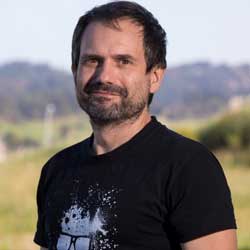

Head of the Laboratory of Environmental Microbiology, Institute of the Czech Academy of Science CAS (Prague, Czech Republic). The research in the laboratory covers the ecology, physiology and biochemistry of microorganisms in the environments, especially in soils, plant litter, decomposing wood or in association with plants.
The main emphasis is placed on the study of microorganisms involved in the decomposition of organic matter in forest litter and soil.
https://mbucas.cz/en/research/ecology/laboratory-of-environmental-microbiology/
Full professor of Plant Physiology, Public University of Navarra (Pamplona, Navarra, Spain). His main studies have been focused on nitrogen utilization in agricultural systems. In general, on the metabolic regulation and agricultural implications of nitrogen fixation in legumes, with special emphasis on the use of natural and synthetic nitrification inhibitors and their impact on plant nitrogen nutrition.

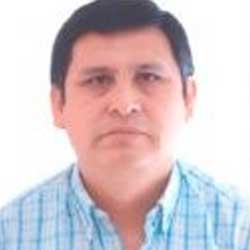
Professor and head of the Beneficial Plant-Microbe Interactions laboratory at National University of Barranca (Perú). He leads a project that uses omics tools to restore high mountain soil microbiota and achieve sustainable crop production through inoculants with plant growth-promoting activity.
Principal Investigator of the Oral Microbiome Laboratory at the FISABIO Foundation (Valencia, Spain), where he has applied metagenomics and NGS technology to the study of dental caries etiology, also discovering the presence of bacteria which prevent the formation of cavities, as well as to the study of bacteria from breast milk, saliva, human tumors, stomach, and the respiratory tract. He has been the coordinator of the Spanish Network for Bacterial Genomics (2004 until 2012) and of the Spanish Network for Oral Microbiology (since 2014).
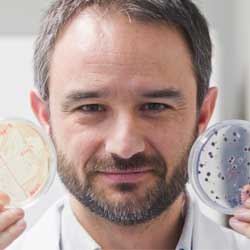
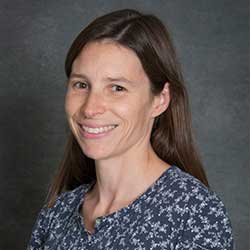
Head of the Metagenome Program at the Department of Energy, Joint Genome Institute (Berkeley, California, USA). Principal Investigator of the Microbial Systems Group whose work focuses on how microbes interact with plants to affect growth, health and stress resistance as well as how microbes influence greenhouse gas uptake and release in wetlands and agricultural systems.
https://jgi.doe.gov/our-science/scientists-jgi/susannah-tringe/
Emeritus Professor of Microbiology at the Department of Microbiology and Genetics at the University of Salamanca (Spain). He has been president of the Spanish Nitrogen Fixation Society (SEFIN), director of the Consolidated Research Unit of the Junta de Castilla y León (UIC 122) and director of the Recognized Research Group (GIR) of the University of Salamanca «Plant-Microorganism Interactions”.
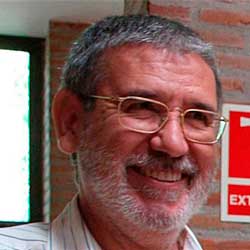
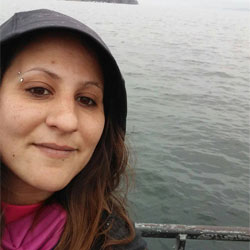
Rocio Medina is a CONICET Assistant Researcher at Centro de Investigaciones en Fitopatologías (CIDEFI), National University of La Plata (UNLP, Argentina). Rocio does research in Chemical Biology, Biochemistry and Evolutionary Biology. She has experience in bioremediation of chronically contaminated soils. Currently, her research interest is focus on phytopatology, plant-pathogen interactions, molecular biology and secondary metabolites.
https://scholar.google.com.ar/citations?user=TjFPp9MAAAAJ&hl=es
https://www.scopus.com/authid/detail.uri?authorId=56503144000
Researcher since 2001 at Water Research Institute – National Research Council (Rome, Italy) and Principal investigator of the soil and groundwater ecology and microbial ecology lab. Fields of interest: Microbial Ecology regarding soil, sediments and groundwater; Xenobiotic fate and their effects on soil and water ecosystems; Bioremediation by using bacterial populations capable to transform and to mineralize xenobiotics and Plant assisted bioremediation; Environmental Risk Assessment of dangerous substances.
https://www.irsa.cnr.it/wp/?page_id=1168&author=anna.barracaracciolo
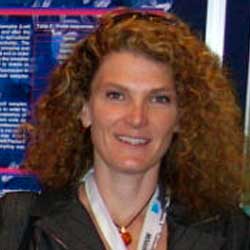
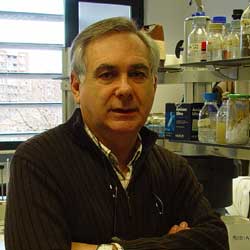
Full professor of Microbiology, University Miguel Hernandez (San Juan, Alicante, Spain). Head of the Evolutionary Genomics group, his studies of population genomics of aquatic bacteria and archaea lead to the proposal of a model of population biology of prokaryotes, the constant diversity model in which large genomic diversity is present in populations of free living aquatic microbes thanks to the predatory pressure exercised by their accompanying viral populations, providing a highly plastic and efficient resource exploitation.